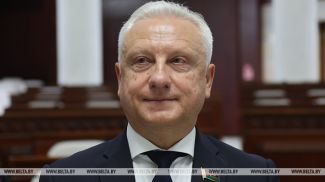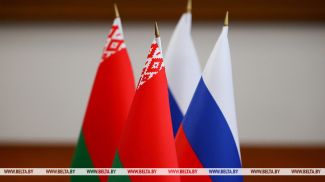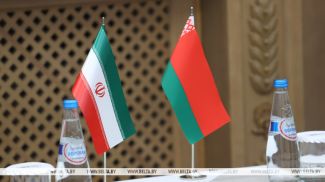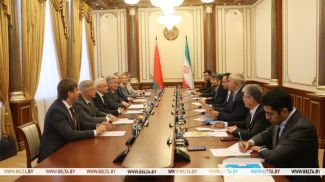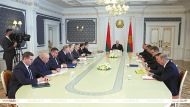MINSK, 28 May (BelTA) - Belarus is taking part in the 9th Nevsky International Environmental Congress running at the Taurus Palace in St. Petersburg, BelTA learned from the press service of the Natural Resources and Environmental Protection Ministry of Belarus.
"The congress focuses on new climate policy and closed-loop economy, water and forest management, ecotourism, Arctic problems, green finance and environmental security and many more topics," the press service noted.
Hundreds of delegates have been invited to participate in the event, including a delegation from Belarus headed by Natural Resources and Environmental Protection Minister Andrei Khudyk. Foreign guests include heads of international organizations, speakers of parliaments, well-known experts and activists of environmental movements. The co-chairs of the organizing committee of the forum are Chairperson of the Federation Council of the Russian Parliament Valentina Matviyenko and Deputy Prime Minister Viktoria Abramchenko.
On 27 May Belarus' Natural Resources and Environmental Protection Minister Andrei Khudyk met with Ruslan Edelgeriyev, Advisor to the Russian president, Special Presidential Representative on Climate Issues, to discuss the possibility of undertaking joint efforts against climate change, the press service of the ministry informed.
“The European Parliament adopted a resolution on a World Trade Organization-compatible European Union Carbon Border Adjustment Mechanism, which is due to enter into force no later than 1 January 2023. The mechanism is part of the European Green Deal, which creates an incentive to decarbonize sectors of European industry and EU trading partners. The move will contribute to achieving carbon neutrality of greenhouse gas emissions in accordance with the goals of the Paris Agreement. The mechanism will cover all imports of goods belonging to the energy sector and energy-intensive industrial sectors,” said Andrei Khudyk.
The EU market is the world's second largest consumer market, and this puts it in a unique position as a global standards setter. The main risks associated with the introduction of this mechanism are the use of protectionism, i.e. the protection of own business interests, and also discrimination, which does not take into account the interests and specifics of the social and economic development of EU partner countries, the press service added.
Belarus attaches great importance to combating climate change and take measures at the national level to reduce greenhouse gas emissions, Andrei Khudyk noted. “Belarus honors its international obligations to cut greenhouse gas emissions at the national level. In its first nationally determined contribution, Belarus announced plans to reduce emissions by 28% by 2030 over 1990. The second nationally determined contribution provided for 35% reduction by 2030 over 1990, taking into account changes to farming and forestry and without attracting additional financing,” the minister noted.
In line with its commitments, the Belarusian government is executing an action plan to implement the Paris Agreement. It is aimed not only at fulfilling Belarus' obligations in fighting climate change, but also at solving such strategic goals as introduction of innovative energy-efficient solutions with high added value, increasing energy efficiency and the volume of consumption of domestic energy resources and energy, and reduction of emissions of greenhouse gases and air pollutants.
International climate change regulations should take into account the interests and development level of different countries, Andrei Khudyk pointed out. “They should not reflect only one point of view. It is obvious that restricting competition and imposing barriers to trade under the pretext of efforts to combat climate change can have a negative impact on solving climate change issues and achieving sustainable development in certain countries, including Belarus,” he said.
Andrei Khudyk proposed Ruslan Edelgeriyev to consider organizing joint work to combat climate change under the auspices of the Belarusian Natural Resources and Environmental Protection Ministry.






